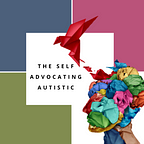My Son is Not Rainman
I wasn’t either, yet I was more akin to the human nature of autistic boys as a daughter.
My Son is Not Rainman is a book by standup comedian John Williams. This is the quote from one of the first pages when you open the book, which I am grateful I did as it was on a reduced book sale shelf in a small bookshop in Dublin I ventured into on Tuesday.
With their poignant interconnectedness, these words from an unidentified stranger just left my heart open and my mind filled with a more profound perspective. What a way to view a difference in other human beings’ cognitive processes with curiosity and joy! What inspired John to write the book about his son is heartbreaking, tragically comedic, literally as this happened when he was booked for a corporate gig at a London comedy club.
He made the decision to experiment with some brand-new writing that was family-life-inspired. “The comedian before me talked about his family. Lots of standups talk about their kids. I wanted to talk about mine, too.”
The audience stopped laughing when John mentioned that his son was autistic. “The reaction was hideous,” he says. “One guy came up at the end and asked if what I’d said was real. When I said it was, he shook his head and walked off. The attitude was, ‘We’ve come for a night out; we didn’t want this.’”
John concluded that he had perhaps been a bit naive, but he also felt angry that his son’s condition seemed to render him unmentionable. There was no intention to shock. “I thought there must be a way to talk about my child without that response.”
The result was My Son’s Not Rainman, an hour-long show and accompanying blog about his then 12-year-old son and their life together. Sadly, I cannot locate the blog anymore at the link in this article on the book in The Guardian. The article is over seven years old, which means John’s son is now an adult, and I can’t find any more updates naturally in this transition from childhood to adulthood as he always kept his son’s identity confidential and referred to him as the boy, which is to be commended.
I have just begun to read the book, and it was a precious buy on a rainy afternoon as it found me. I felt compelled to buy it because I sometimes identify more with the lived experiences of autistic boys in childhood than girls. I also know autistic and other neurodivergent males, and ironically, you guessed it, we get along quite contently and in harmony despite our differences as human beings; there is relational interconnectedness also.
It was only as I became more conditioned into gendered environments in my teenage years that I began to alter. Now I’m aware enough at 48 to know that it has nothing to do with gender dysphoria as a kid or beyond, and if it did, I am sure I would have done something about it already if that were the case, but rather it has to do with human nature.
A reminder within this is that the traits of autism are just that: human. Yes, arguably, girls can present differently as they can be better at concealing some behaviours boys don’t, but that is the same for all boys and girls, not just autistic ones. While research does confirm that girls take longer to identify due to this, I can tell you vividly that I was doing all the things, unfortunately, that have stereotyped autism in boys only as a young girl and beyond myself.
We are not that different in how we think, feel, and behave. Nor are we that different from others. We are humans with an alternative view of the world that should be embraced, valued, and leveraged for the strength that comes with it.
Anyway, I managed to get the time to write this earlier, along with a little bit on Valentine’s Day the other evening, that some of you may relate to, which you can find here.
I know I had planned on staying out of the inboxes for a month or so after overdoing what felt like a thesis again on my piece that landed on Sunday, but the humour took me, as they say, and time and I made friends.
Thankfully, the very stereotypical depiction of a male autistic adult in Rainman has come a long way since then, but we still have much work to do as a society. However, I still have a soft spot in my head and heart for the film despite its damaging narratives on some levels. And who can forget this cracker of a tune on the soundtrack?
So I will leave you with this today and say, Iko Iko…
And I will, with hope and grace, continue to work alongside so many others in the autistic community. One day, too, we will sing a value-driven victory chant when we all get the same chance as others to thrive within our heads and hearts on our terms.
